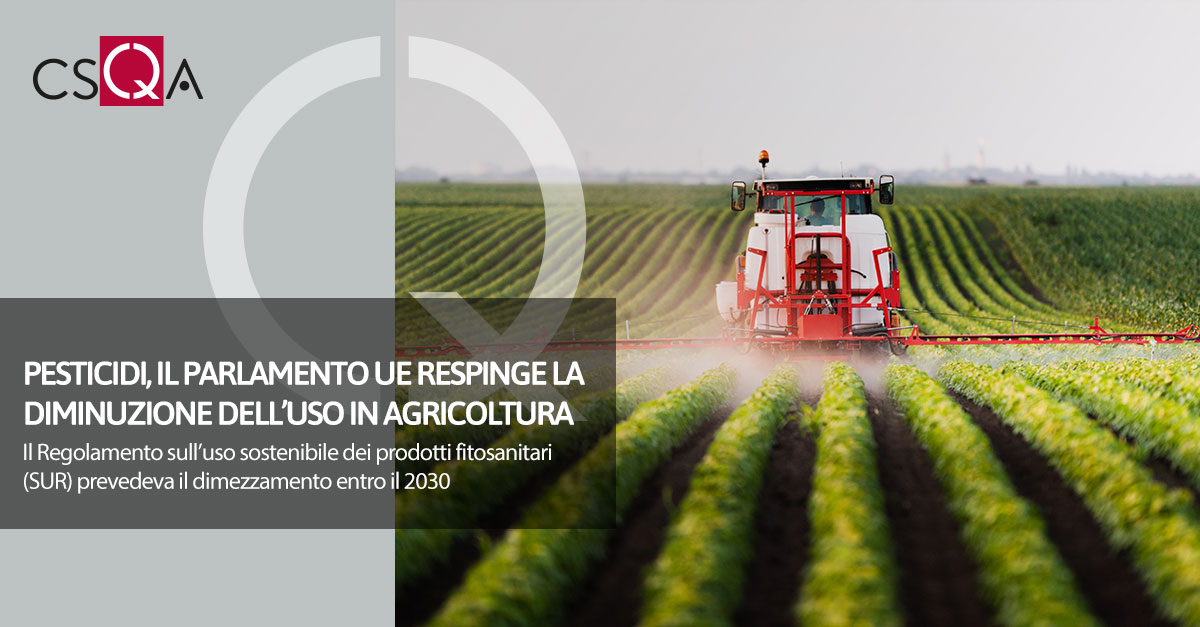 No agreement of the 27 on glyphosate. For the second time, after the vote last October 13, the EU Standing Committee for Plants, Animals, Food and Feed did not reach the qualified majority needed to decide the fate of the controversial herbicide. Italy, which had voted in favor in October, this time, together with France and Germany, abstained.
No agreement of the 27 on glyphosate. For the second time, after the vote last October 13, the EU Standing Committee for Plants, Animals, Food and Feed did not reach the qualified majority needed to decide the fate of the controversial herbicide. Italy, which had voted in favor in October, this time, together with France and Germany, abstained.
The vote against the Sustainable Use of Plant Protection Products Regulation (SUR) represents a major setback for the ambitions contained in the European Green Deal.
The proposed Regulation put forward by the Commission in June 2022 to halve the use of chemical pesticides by 2030 and strongly limit their use in sensitive urban areas and Natura2000 sites, with the exception of those authorized for organic farming and biological control , represented a cornerstone of the Farm to Fork and Biodiversity 2030 Strategies , already significantly weakened by the postponement of the adoption of the Legislative Framework on Sustainable Food Systems.
European law now requires the executive to make a decision.
The Commission will give the green light to glyphosate on the basis of the report by the European Food Safety Authority - EFSA , which states that the level of risk for humans, animals and the environment is not such as to justify its ban.
Some limitations will be introduced, including a ban on use for pre-harvest drying, and some protection measures.
However, the Member States remain responsible - recalls the Commission - for authorizing products containing glyphosate and for restricting their use at a national or regional level , if there is a particular need to protect biodiversity.
But scientific research continues and, if evidence emerges that the substance is dangerous, the authorization may be reviewed or withdrawn.
Glyphosate is the most widely used herbicide in the world . It has also spread thanks to its enormous convenience: in 1973 the use per hectare cost around 300 euros, today it has fallen to just 7 euros, according to what the French National Agricultural Research Institute reports, nutrition and the environment – Inrae.
The authorization debate is closely watched in France , where the government has already done a lot to reduce dependence on glyphosate. Germany and Austria are also moving towards a ban , while the first European country to ban it was Luxembourg , in 2020. But in April this year, the Grand Duchy's law was declared illegitimate, because it was deemed unfounded, and the State had to re-establish the trade authorization. (Source: https://www.vita.it/ )
Home
Corporate
Communication
News
Pesticides, the EU Parliament rejects the reduction of use in agriculture
Pesticides, the EU Parliament rejects the reduction of use in agriculture
